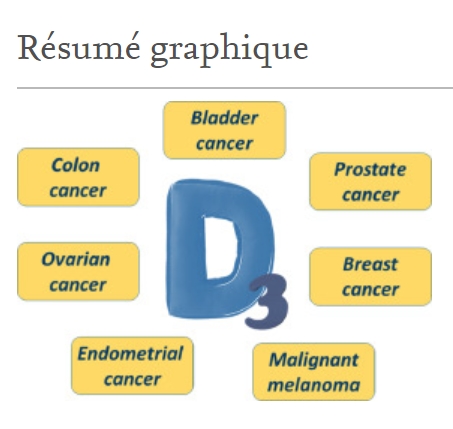Role of vitamin D3 in selected malignant neoplasms
Nutrition 30 July 2020, Anna Markowska
Highlights
• Vitamin D3 exerts anticancer effects in several cancer models.
• Dietary vitamin D3 may be useful in cancer treatment and chemoprevention.
• Vitamin D3 plays a significant role in the development and clinical course of cancers.
Vitamin D3 is a fat-soluble essential nutrient affecting multiple biological functions in the organism through calcitriol and the vitamin D3 receptor (VDR). This review article is focused on results of the studies on the relationship between the level of vitamin D3 and cancer incidence or mortality, but also on the anticancer properties of vitamin D3 that support its significant role in the prevention, clinical course and overall survival rates of selected cancers (colorectal, prostate, breast, ovarian, endometrial, bladder, and malignant melanoma). The mechanisms of vitamin D3 action involve, among others, polymorphism of VDR, cell cycle, caspases and cancer stem cells. It has been also demonstrated that the level of vitamin D3 can serve as a biomarker in some cancers and high levels of vitamin D3 can be conducive to successful cancer therapy.














